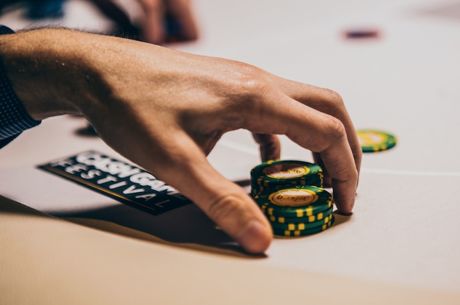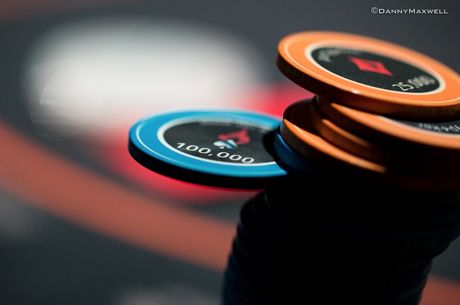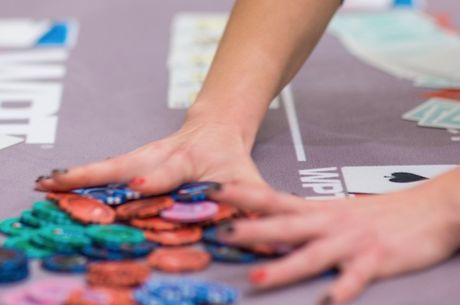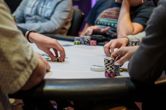Being Balanced by Avoiding Predictable Patterns With Your Play
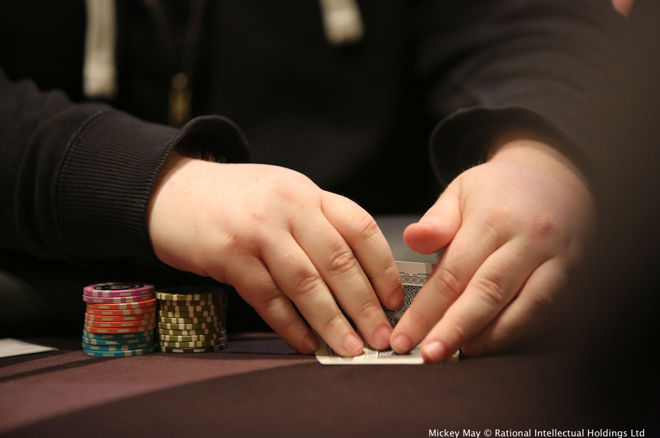
You occasionally hear poker players commenting on hands use the term "balancing" when discussing a player's action on a postflop street.
"If he's going to bet half the pot here with the nuts," they might say, "he also needs to bet the same amount when he doesn't have it if he wants to be balanced."
The concept is perhaps easy enough to follow when watching a hand play out and hearing someone else talk about it, but what's the practical value of being "balanced" with our actions in no-limit hold'em? How much do we really need to be concerned about it?
Definition
First off, to define the term, being balanced refers to playing close to the same way with hands of differing strengths — that is, with a "wide range" of possible holdings — and therefore making it difficult for opponents to narrow your range based on your actions.
A good way to understand being balanced is to think of what it means to be "unbalanced" with your play. If you only bet or raise with your strongest hands and only check or call with your weakest hands, you are unbalanced. You are also susceptible to being exploited by opponents who notice such obvious patterns in your play.
If instead you sometimes bet when you are strong and other times bet when your are weak, you make things more difficult for your opponents who can't know for sure if you're betting for value or as a bluff. The same goes for checking and calling when you're strong as well as when you're weak — your opponent can't know whether you are being passive and preparing to fold a weak hand or are slow playing a big hand.
Being Balanced Matters More When Opponents Are Paying Attention
If you play online poker at the lowest limits — the "micros" — or even a little higher, you'll encounter a decent number of inattentive opponents more focused on their own hands and actions than what you are doing. Against such players, the need to be balanced with your actions is much less important and in fact can be detrimental to you.
Attempts to slow play big hands and "trap" such opponents aren't really recommended, since such players usually aren't basing their actions on what you're doing. They might bet if they have something and thus allow to you to build bigger pots with your monsters, but they aren't going to bet because you've checked. Similarly, bluffing such players — i.e., betting with weak hands — isn't usually a good strategy, either, since they'll only be focused on their own hand strength and not yours when you bet (likely calling with hands that beat you).
Against these players, efforts to balance your play go unrewarded. In fact, it is often better to be unbalanced against them — betting/raising with strong hands, checking/calling/folding with weak ones — since they aren't observant enough to pick up on the patterns.
When playing against players who are paying attention, however, you definitely want to avoid falling into exploitable patterns of play and balance your actions. Here are three quick examples of balancing your play:
1. Preflop: Open-Raising from Late Position
If folded to in the cutoff or on the button, many experienced players will raise a high percentage of the time regardless of their hand strength. In tournaments especially, the reward of stealing blinds and antes can make such late-position opens almost mandatory to try with some frequency. (In cash games where the blinds never increase, stealing is less vital although open-raising from late-position still can be beneficial.)
Staying balanced means making such late-position opens with strong hands like A♣K♦ or J♦J♥, with medium-strength or "speculative" hands like 10♣9♣ or A♦3♦, and even with "garbage" hands like 10♦4♣ or 5♣2♦. If you only raise with premium hands, you make things easy for opponents. But if you balance your play, opponents won't be able to narrow your range so easily.
2. Postflop: Continuation Betting
Continuation betting means after having taken the initiative preflop by raising, you keep it by betting the flop as well. While you shouldn't always feel obligated to c-bet the flop every time you've raised preflop, you also shouldn't be unbalanced with your c-betting and only bet when the flop helps you and check when it does not.
Say you've raised from late position and one of the blinds calls, the flop comes J♦8♦6♣, and your opponent checks. You will make a continuation bet a certain percentage of the time here — say 75 percent. Some of those hands will be strong ones that rate to be best after the flop, hands like A♣A♥, A♣J♣ or 6♦6♥. Others will be weak ones that aren't helped by the flop like A♥5♥, 4♣4♦ or 7♠2♣.
The point is your opponent cannot immediately estimate your hand strength and narrow your range when you bet. The same goes for the 25 percent of hands you check behind — those, too, contain some strong hands as well as some weak hands.
3. Postflop: Playing Draws
Take another postflop situation — you don't have a "made hand" but have a draw to a hand that will likely be best if it hits. Say you have A♥7♥, the flop comes K♥8♣2♥, and your opponent checks.
Sometimes you bet (or raise if your opponent bets), and are fine with picking up the pot right there. You're also fine with being called, as you've built the pot and set up having bought yourself a "free" river card after your opponent likely checks the turn. Other times you check behind (or just call if your opponent bets). In any case, if you don't always do one or the other with your drawing hand and balance your play, your opponent knows less about the significance of your action.
The fact is, because you're balanced, you're playing your drawing hand in what appears to be the same way you'd play a strong made hand or a weak hand full of nothing.
Conclusion
One last point to make about balancing your play. Just as it only really matters to be balanced when your opponents are paying attention, it also only really matters in frequently encountered, "common" situations such as the three described above.
No-limit hold'em is a game that features many much-repeated situations, but also sometimes produces relatively unusual circumstances that don't come up that often. For example, say you enjoy the good fortune of flopping a set and then turning quads. You'll want to extract as much value as you can from your big hand, but don't worry too much about balancing how you play quads, because how often is that going to come up again?
Rather, when up against observant opponents, try not to fall into predicable patterns in common spots. By remaining balanced with your play, you increase the chances of keeping your opponents "off balance" with their reads of you and your hand strength.

